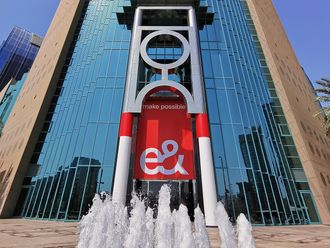Independent opinions play a vital role in the financial markets. They provide protection from the barrage of hype, partial truths and spin with which investors are too often bombarded by people trying to sell them something. Their hallmarks are objectivity and freedom from commercial bias and wise investors usually consult them.
Among the best known providers of independent views are the credit rating agencies, which assign grades to bonds and other investments. The reputation of some of these agencies has been tarnished in the last two years. Other types of companies, such as the index providers FTSE and MSCI, provide independent assessments of the quality of the equity markets of entire countries. Their reputations have not suffered like the rating agencies' and their annual pronouncements are eagerly awaited. So a decision last month by FTSE to promote the UAE to ‘secondary emerging market' status (effective in a year's time) is an important seal of approval for the progress this country has made in improving the regulatory and operational structure of its equity markets. Many overseas funds will now be more comfortable investing in the UAE and inflows are likely to increase accordingly, with a potentially beneficial effect on accurate share valuation.
The UAE is now the GCC leader in the FTSE rankings. Bahrain, Oman and Qatar are classified as ‘frontier' markets, a lower category than secondary emerging, while Kuwait and Saudi Arabia have no ranking at all. International comparisons are also interesting. Among Arab countries only Egypt and Morocco have a classification as high as the UAE and none is ranked higher. China was considered by FTSE for secondary emerging status but did not make the grade this time.
A checklist provided by FTSE shows why the UAE has succeeded in entering the secondary emerging category, and what further progress it would need to make to join the ‘advanced emerging' category, or the highest classification of all, the ‘developed' category.
The UAE has made progress in some areas: Active monitoring of the equity markets by regulators; no significant restrictions on repatriation of capital; adequate competition among brokers; and sufficient liquidity to support sizeable global investments and transparency in the trading process, including market depth information and timely trade reporting.
However a significant number of other features still separate the UAE from the higher categories. Prominent among these, says FTSE is permission to sell stocks short; and permission to trade ‘over the counter,' which takes place where two parties deal directly with each other rather than on the exchange's trading platform.
Fortunately, the UAE has already made significant strides towards one day meeting these criteria. One of its three stock markets, Nasdaq Dubai, opened an equity derivatives market last year. The market has grown rapidly this year and the potential for further expansion is huge, as equity derivatives provide both a hedging mechanism for exposure to regional shares and investment opportunity in their own right Nasdaq Dubai also allows a responsible form of short selling. The excahnge is also the only one in the UAE that allows over the counter transactions.
Substantial investments
The UAE has made great progress and it needs to keep moving forward. Of course, no nation or exchange needs to meet the requirements of FTSE, or similar companies, if it does not wish to. Indeed, opponents of globalisation believe that foreign investment should be turned away. This attitude is unrealistic, as the UAE's own experience shows. Even more than most countries, it has benefited both from its own substantial investments overseas and from the enormous capital inflows that have helped to create a productive economy supported by knowledge and skills from around the world. The UAE will benefit further as it continues on the path of enhancing access to its equity markets and improving their efficiency.
— The writer is chief executive of Nasdaq Dubai. The views are his own.











